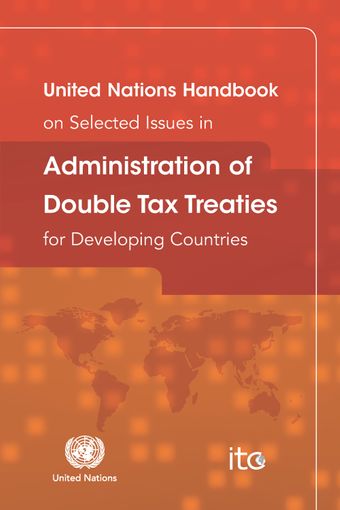- Home
- Books
- United Nations Handbook on Selected Issues in Administration of Double Tax Treaties for Developing Countries
- Chapter
Taxation of non-residents on business profits

- Author: Jinyan Li
- Main Title: United Nations Handbook on Selected Issues in Administration of Double Tax Treaties for Developing Countries , pp 193-219
- Publication Date: October 2013
- DOI: https://doi.org/10.18356/f4f30549-en
- Language: English
The taxation of non-residents on business profits is important to developing countries in terms of raising revenue and encouraging foreign investment and trade. The source country has the legitimate right to tax business profits arising in its jurisdiction. Tax treaties impose no limits on such taxing rights, other than the obligation to tax net profits (instead of gross profits) in some situations, once the threshold for taxation is satisfied. As such, this source of tax revenue belongs to the source country. There is generally little expectation of the residence country of a non-resident taxpayer in sharing the tax revenue. It is true that the residence country also has a right to tax the profits, but it generally provides a credit for the source country tax or exempts them from tax in order to prevent double taxation. If the residence country provides a credit for taxes paid to the source country, the noncollection of the taxes owed to the source country is a fiscal transfer to the residence country, with no benefit to the taxpayer.
-
From This Site
/content/books/9789210562522c015dcterms_title,dcterms_subject,pub_keyword-contentType:Journal -contentType:Contributor -contentType:Concept -contentType:Institution105

